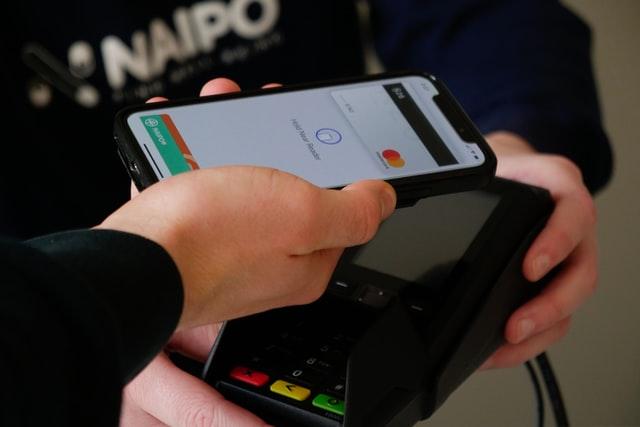Paying without cash is becoming the norm. It’s becoming easier and easier to do cashless transactions. And everywhere around the world financial corporations, politicians and economists are working to do away with paper money. The future of cash is where people can hold digital euros or dollars directly at the central bank.
Operating in cash costs countries about 0.5% of their GDP every year. But the cost isn’t the only incentive to move towards a cashless future. Demand is rising. Primarily demand from the young generations who are looking for fast and easy-to-use means of payment.
A lot of people are predicting that the world is going cashless. Somewhere in the near future, physical money will become like relics of different ages in museums. Digital payments aren’t just easy, they are neat. It also becomes easier for governments to monitor cash movement.
Cash is king, but in the digital world where payment is as easy as a beep with a card or mobile phone. Is cash still king? Cash is still relevant, but cash is no longer king. Although people around the world still use cash to purchase things every day, it is decreasing.
Electronic payments have eliminated checks while card payments have grown. Hence giving rise to an increasingly cashless environment. And with online payments, more and more of us carry less money.
Cash is only used for a small percentage of transactions and the rest are mainly done through debit or credit cards, digital wallets, smartphones or online transactions.

Contents
What is a cashless society?
A cashless society eliminates the need for physical currency in transactions for the payment of goods and services. The idea is to make it more convenient for consumers and retailers. Having an electronic financial system in place would mean that consumers would always have the ability to pay for their goods and services, even if they were out of money.
The cashless economy is a system where currencies are shifted from physical to digital channels. Some popular terms for this trend include plastic money and mobile Wallet.
A cashless society would have many benefits. For example, it would make managing money much easier. Using a debit or credit card would help with keeping track of spending and make bills easier.
It also makes international travel more convenient, as consumers can make purchases and pay taxes wherever they are. Retailers would benefit from having a wider choice of ways to pay, as a digital payment system is more secure for businesses.
The rise of mobile usage and digital applications has contributed to the trend of going cashless. The use of e-wallets and digital payment platforms has made this possible.
Impact of going cashless
Cashless societies are the future and it is a necessity. The transition to this future would eliminate the need for cash, which could lead to crime reduction. Less paper currency means less crime, everything from bank robberies, terrorism, illegal immigration and tax evasion can be eliminated.
Illegal transactions such as groups of terrorists buying weapons and smugglers conducting human trafficking can be easily traced or stopped. As arms dealers, narcos or human traffickers generally don’t accept Visa and MasterCard or are inclined to checks.
Hence cashless economy will make criminal businesses difficult. Furthermore, it would prevent the risk of counterfeit money circulating. Banks invest in infrastructure to support a rapid increase in electronic transactions. They also hire large security teams to protect their branches. Digital payment would make these expenses a thing of the past.

Apart from crime, it also eliminates the hassle of visiting ATMs or running out of money when you need to pay or tip someone. It also saves time and energy for people and retailers, as there is no need to wait in line at the bank or ATMs.
Furthermore, digital transaction eliminates the need for coins and checks as well as has fewer costs. Going cashless will reduce tax evasion which is an ongoing problem for many governments.
A cashless society can reduce the gap in tax collection by closing the tax gap. In addition to cutting down on tax evasion, it will improve transparency and culpability. With the introduction of contactless payment methods, people will be able to make payments with a tap of their phone.
In addition to these benefits, electronic transaction will allow us to travel worldwide and buy whatever we want from any location around the world. However, the impact of going cashless in society is somehow unknown.
While the transition to a cashless society would eliminate physical cash, it is important to ensure that no one is left behind. Some consumers will want to continue to use their bank cards or paper money.
The elderly are particularly vulnerable, as they do not have the means to learn how to use digital payment methods. The transition to a paperless money society could be problematic for the most disadvantaged in society.
It would create a new class of customers, which will be a barrier for the poor. In the long run, the government will have to ensure that people do not lose their rights to privacy and security. The government should ensure that the benefits of a cashless society are not lost in the process of making transactions.
The government should not mandate the adoption of these systems as a means to create an environment of exploitation. This could lead to higher prices and less competition. There is also another big issue, what the hell would happen during a power outage? A lot of things must be considered before going cashless.

Future of going cashless
As consumers become more accustomed to using credit and debit cards, cash is becoming a thing of the past. Moving away from paper money may be beneficial for business owners and many are already making the switch. It can increase operating efficiency, reduce waiting times for customers and even create a safer work environment for employees.
Going paperless is a difficult choice for many people, including the poor and the uncomfortable. Some people fear this move but it could be a major benefit for society. It enables more convenience and reduces costs for businesses.
The future of cashless society is fast approaching. There are many reasons for this trend but the pandemic has made it inevitable. Before, retailers were more reluctant to adopt new payment technologies due to costs and infrastructure issues. This has made the system seem like a distant dream.
But today, with the rise of tech-hungry young consumers, an increasing number of consumers using mobile devices and the pandemic, this may be a reality. As the growth of smartphones and e-commerce websites continues to drive down the costs of merchant services, a cashless society is a viable option for many consumers.
With the rise of mobile payment apps, more service providers are accepting electronic payments while reducing their reliance on traditional cash. With these benefits, businesses can look forward to a more secure and convenient lifestyle. The future of cashless society is just around the corner.
The pandemic has caused a drastic decline in cash usage due to the risk of contamination. The unprecedented surge in the demand for contactless payment has also shown outstanding performances from major companies offering cashless payment methods.
You’re seeing digital payments in this crisis, move from being a nice-to-have capability to a must-have essential service. Whether it is credit or debit or prepaid cards or peer-to-peer services like Paypal. However, this trend should not be rushed.
This type of payment system isn’t without its drawbacks. There are several challenges that need to be addressed before moving forward. The first step towards a cashless economy is universal financial inclusion. Every citizen needs access to online and mobile banking facilities.
In some countries, it is not even enough to have digital inclusion. Financial institutions must make all citizens aware of the digital instruments available to them. They must also be trained in how to use these instruments. This will help them understand the importance of these instruments.
The transition to a cashless economy is likely to be a long and complex process. This type of economy poses a threat to the security of financial systems. It could increase the risk of identity theft and fraud. Without an appropriate method of verifying an individual’s identity, merchants can be easily cheated or defrauded.
Furthermore, the existing processes for ensuring the security of identity are usually tied to outdated financial systems. Therefore, a paperless money society is unlikely to be safe.
A cashless society poses challenges for some people, especially those without a bank account. Those without bank accounts may not have the technology to use a contactless payment system. They might also lack a way to receive financial aid.
While the concept can help reduce theft, it poses many risks to our security. In addition to the security issues, it could result in more corruption. Since many businesses rely on outdated technology, there’s an increased risk of a system malfunction, leaving people without access to their money.
Moreover, a cashless society will make the population more susceptible to economic failure. The possibility of a cyberattack, bureaucratic error or even natural disasters could shut down accounts and cause a loss of funds or identity.
Although a cashless society is an attractive vision, it is important to note that it will not be easy to fully implement. There will be numerous issues and millions of people could be left behind. It is also critical to consider the needs of unbanked people, who may not be able to access traditional financial institutions.
While it will be advantageous, it will require the participation of a wide range of stakeholders, including government officials, technology companies, consumers, and advocacy groups.
However, the benefits of a cashless society outweigh these risks. Some people may be concerned that it could lead to more fraud and exploitation. It will take some time to see whether this new method will prove to be beneficial for the economy.

0 Comments